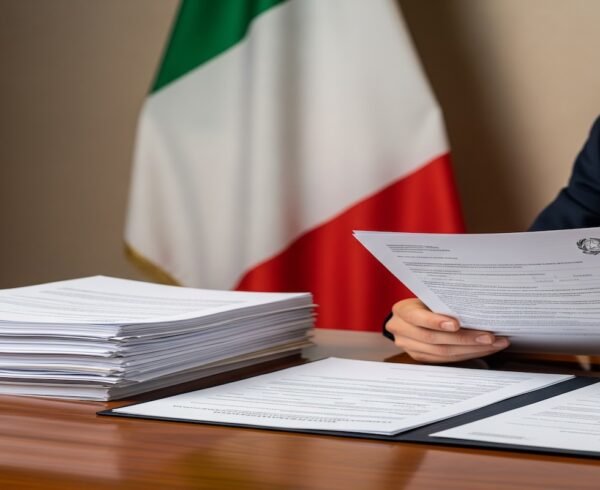Obtaining a residence permit for the non-EU cohabitant of an EU citizen for a de facto couple is now a jurisprudential achievement. There are more than 200 pages and countless decisions issued by major Italian Courts – Milan, Bologna, Modena, Palermo – which, pursuant to Cirinnà Law, certify the right of a non-EU citizen to live in a de facto union with an Italian citizen.
De facto cohabitation contract to obtain a residence permit. Basic requirement
The basic requirement for obtaining a residence permit for a non-EU citizen living as a couple with an Italian is the cohabitation contract. In a de facto cohabitation, the non-EU cohabitant can obtain a residence permit proving that he has a stable relationship with an Italian citizen.
Therefore, the Italian Courts require the cohabitation agreement so that the binational couple consisting of an Italian citizen and a non-EU citizen is filed in the local Registry and, consequently, so is the non-EU party.
The bureaucratic short circuit that prevented cohabitation with a foreigner without a residence permit
Despite the Cirinnà law stating the right of all adult couples made up of 2 individuals of any sex to live together as if they were married, the local municipalities refuse to register binational couples who signed a cohabitation contract. That is, the non-EU cohabitant is not recognized as residing in Italy without a residence permit issued by the Police. The Police, in turn, even when a cohabitation contract is exhibited, does not issue the residence permit to the non-EU cohabitant unless they’re registered at the municipality to identify their residence. A conundrum that has been going on for years, despite the issue of an ad hoc circular by the Ministry.
The documents required a couple made up of a non-EU and an Italian citizen to stipulate a cohabitation agreement.
A cohabitation contract is a written agreement entered into before a public official or an immigration lawyer, whereby two individuals who are not already bound by other relations of kinship, affinity, adoption, marriage or civil union declare their emotional bond and mutual moral and material assistance, identifying the place where they will reside, constituting the new family unit and their economic relationships.
To stipulate a cohabitation contract between an Italian citizen and a non-EU cohabitant, the following must be shown:
- identity document / passport
- certificate of free status of the Italian cohabitant;
- authorization from the foreign citizen;
- certificate of residence of the Italian cohabitant.
After signing the cohabitation agreement, it is possible to request registration in the registry office of the municipality of residence. Subsequently, to request a residence permit at the police headquarters for de facto cohabitation, it is necessary to show:
- the residence;
- proof of sufficient economic resources to support the couple;
- the cohabitation agreement signed in front of a lawyer.
In case a municipality, as often happens, should oppose registration despite the exhibition of the cohabitation agreement, and the immigration office does not issue the residence permit, it is necessary to activate a judicial procedure with the assistance of an immigration lawyer.
Conclusion
In summary, for a bi-national couple wishing to obtain a residence permit for cohabitation for the non-EU partner, it is necessary to:
- stipulate a cohabitation agreement with the help of a lawyer;
- ask the municipality for the transcription of the agreement and contextual registration for residence;
- go to the police station with the registry registration and the transcribed agreement and ask for a residence permit.
For further clarification, watch the video and fill out the contact form to request legal assistance at Damiani & Damiani Law Firm

















